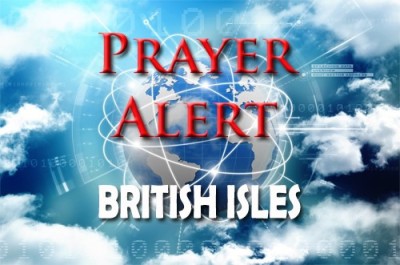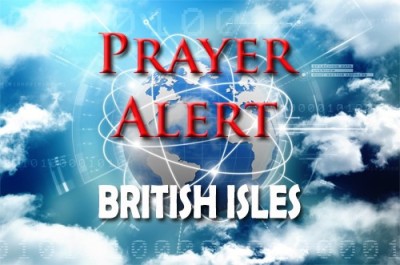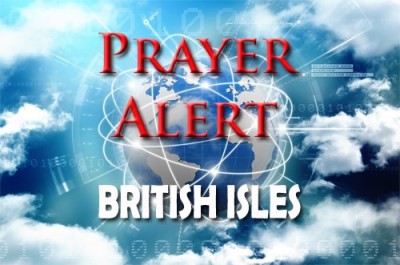Syria: Alewite people in Latakia
30 Mar 2023Located on the Mediterranean Sea, Latakia is a port city of Syria. Its population of 340,000 includes a large community of Alewite people. Alewite Islam is a sect of Islam that is related to Shia. They place an emphasis on their trinity: Muhammad; his nephew and successor, Ali; and Salman al-Farisi. They believe in reincarnation and take part in a ‘mass’ involving bread and wine. They have their own religious book. Among Muslims they are regarded as heretical because of their beliefs and practices. We can pray, ‘Lord, would you use the Alawites and their idea of the trinity to show them that the Father, Son, and Spirit are the true Trinity, the Bible is the only true Word of God, and Jesus Christ is the only way to salvation. In this important port city, use this sect of people who have been rejected to bring Your truth to that city and country.’
Haiti: a failed state?
30 Mar 2023Haiti has been an epicentre of suffering for many decades. Now the people are being suffocated by dangerous, powerful gangs as the downward spiral into a failed state intensifies. Haiti’s last ten elected senators stepped down in January, so there is no functioning government. There is anarchy as armed and violent gangs rule the streets. Deploying a special international force to Haiti could bring desperately needed respite, but analysts believe that without a long-term political solution any new stabilisation measures have little chance of putting a stop to the carnage. Nearly 25% of the total population of the neighbouring Dominican Republic is made up of Haitian; over two million of them are there illegally. The UN recently called for military intervention in Haiti. Missionary Doug Burbella says there's only one way things will improve. ‘Apart from military intervention from another country, I would say a good, old-fashioned revival would be the only thing that could turn this country around.’
USA: tornado devastates Mississippi and Alabama
30 Mar 2023Mississippi has declared a state of emergency. Rolling Fork has been almost entirely wiped out. Dozens are dead. One man survived after sheltering in his bathtub. The lush farmland surrounding Western Sharkey County is completely untouched, but when you reach Rolling Fork, a rural town with a fifth of the 2,000 families living in poverty, nearly all homes are flattened, and the rest are damaged by the furious tornado. Trucks were lifted onto houses, trees uprooted, and power lines brought down. The next day dazed survivors could be seen walking around in shock. But soon it was a hive of activity, with clean-up operations and volunteers opening stations to distribute sandwiches and water. Pray for the communities grappling with destroyed homes and possessions, for those in damaged buildings without electricity. Pray for those mourning the dead. Pray for adequate government support to provide homes for the homeless and rebuild the infrastructure.
Louisiana revival in 19th week
24 Mar 2023What started as a four-day revival event on October 16, 2022, at the Old Zion Baptist Church in Hammond Louisiana has blossomed into 19 weeks of revival, and it shows no signs of stopping. On the first night of the revival, there were only about 125 people in attendance. But 34 people gave their hearts to Jesus Christ. By the fourth night, the gymnasium was packed. Then evangelist David R. Harrison of Voice of Hope Ministries set up his 2,500-seater tent in Hammond in order to help accommodate the large crowd. Brian Lester, Harrison's assistant, said there are signs of the revival continuing. ‘It's only gaining momentum.’ Lester reported, ‘in 19 weeks, over 1,300 have been saved, and countless other lives have been changed.’ He also credits the Asbury Awakening for making even more people want to experience a local revival. Hammond’s services are also live-streamed on Facebook.
Global: Muslims turning to Christ
24 Mar 2023Despite birthing many of the earliest Christian churches, the Middle East and North Africa have endured centuries with little or no access to the Gospel. Today 20% of the world has never heard of Jesus Christ, and between 1% and 10% of missionaries work among Muslims. That’s one missionary for every 1 million Muslims. Nevertheless, recent decades have seen an unprecedented Christian witness. More Muslims have become Christians in the last 25 years than in the previous 1,250 years as Jesus has revealed Himself through visions, dreams, and miracles, and 350 ministries work together to disciple new believers; an amazing movement of the Holy Spirit is taking place. Families and marriages are being healed. A divine Spirit of love and freedom is taking root and bringing redemption and hope for the first time. Hundreds of former sheikhs and imams - now Christ followers - are leading many out of Islam, with multiple cases of entire mosques coming to faith in Jesus.
PM ‘alarmed’ at sex education in schools
24 Mar 2023Christian parents and teachers are distressed by Relationship and Sex Education that is being welcomed into the classroom. Now a 130-page report of inappropriate sex lessons read by the PM has prompted a call for a review into Sex Education. We can pray for an end to primary school children learning about masturbation; for an end to drag queens telling secondary school children there are scores of different genders and asking what they feel about oral sex. Also, there is supposed to be a review of guidance for schools on transgenderism, which has been consistently delayed. Much of the inappropriate teaching and the harmful school culture stems from the gender identity ideology which underpins nearly all RSE resources, and which leads to schools socially transitioning pupils, often without parents' knowledge, for example, the book ‘My Shadow is Pink’ for 4-year-olds. Pray for parents to be allowed to see the materials which schools are using.
Headteacher Mrs Perry killed herself after an Ofsted inspection that downgraded her school's rating from Outstanding to Inadequate. Now a dam has burst. Her family blame her death on the Ofsted inspection pressure, and many headteachers and teachers are now speaking out about their own experiences of the Ofsted process. There are huge pressures on headteachers, bearing the responsibility of solving societal issues within schools and managing challenges like safeguarding, behaviour management, and academic performance. The stress can be overwhelming. The relationship between schools and Ofsted is particularly difficult due to numerous regulations that have evolved over the past 20 years. Policy changes regarding faith, identity, and sexuality have had a significant impact, particularly on faith schools keen to teach in line with traditional Christian beliefs. Many believe Ofsted inspectors approach these issues with their own ideological bias, adding to the challenge. See
Met Police corruption
24 Mar 2023A damning report has found institutional racism, misogyny, and homophobia in the Metropolitan Police - and suggested the force could be broken up if it fails to improve. Met Police Commissioner, Mark Rowley, accepts the findings and systemic failings but says he won't use the term institutional. Officers provided the Review with harrowing testimonies of treatment by colleagues. Complaints were ‘likely to be turned against’ ethnic minority officers, with black officers 81% more likely to be in the misconduct system than white colleagues. Freezers storing victim rape kits were overfilled, and one broke down in a heatwave which meant that rape cases had to be dropped. The PM said trust in the police was hugely damaged, and the London Mayor said it was one of the darkest days in the 200-year history of the force but added it did not necessarily need to be broken up.







